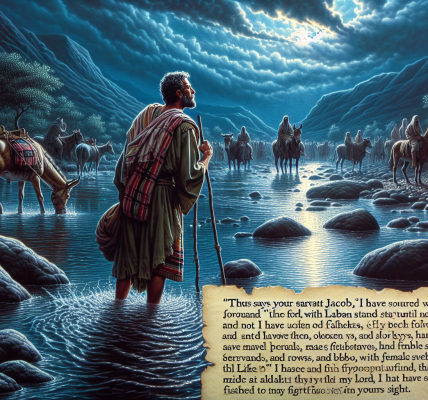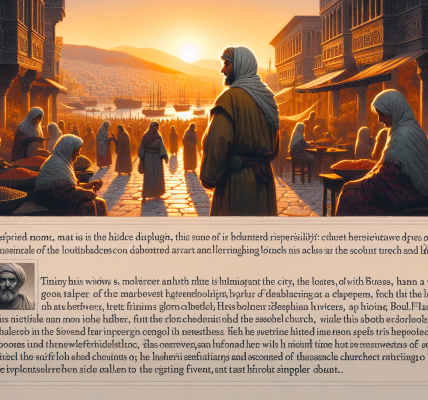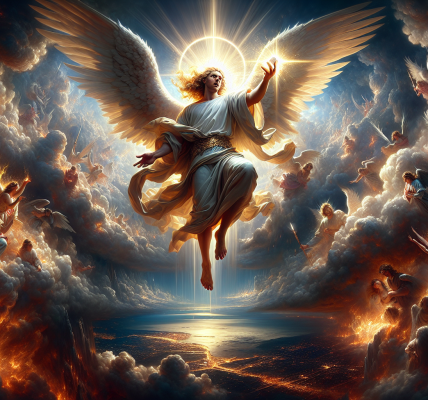Once upon a time, as decreed by Jehovah, the God of Israel, the lands of Lebanon and Bashan were beleaguered by a great and terrible fire. The once mighty forest, now consumed by fire, lit up the night sky. The once grand cedars of Lebanon, the oaks of Bashan – all fell before the fiery onslaught. Lebanon’s doors stood open, welcoming the disaster.
The destruction also fell upon the leaders of the realm. The shepherds of the land, once dutiful protectors of their flock, were now left to wail and mourn, a result of their own pride and greed. Their previously flourishing lands, now laid to waste, became an echo of their failing glory.
To make matters worse, those entrusted with the wellbeing of the flock, instead of protecting their charges, turned to slaughter them without remorse. These men did not feel guilt, but instead blessed Jehovah, proclaiming their newfound wealth. The shepherds of the land had forsaken their duty to their flock and God’s divine mercy had left them.
Jehovah then commanded His prophet, “Feed the flock of slaughter.” So, he took up this command, caring for the mistreated flock and taking up two staves, naming one Beauty and the other Bands. Yet, he soon grew weary of the corruption around him – the false shepherds who should have shared his burden, brought nothing but disdain and scorn.
So, the prophet decided not to feed those who wallowed in their sins and gave up on their redemption. “Let them consume each other,” he said, “as they have allowed their greed and pride to consume themselves.”
Asserting his authority and allegiance to Jehovah’s command, he broke the staff, Beauty, marking the dissolution of his covenant with the corrupt shepherds, his act serving as a warning to the humble and poor of the flock. This was no act of a mortal, it was the work of Jehovah.
The prophet then asked for his deserved pay, thirty pieces of silver. On receiving his dues, he cast it onto a potter in the temple of Jehovah, as guided by the Lord. It was the hefty price he was valued at by the faithless shepherd.
The prophet then cut asunder his remaining staff, Bands, marking an end to the brotherhood between Judah and Israel – a consequence of their sins.
In the end, Jehovah raised a new shepherd, one who sought not the well-being of his flock but their destruction. This shepherd, driven by his greed, devoured the fat of his sheep, tore their hoofs, and abandoned them in their time of need. His punishment from Jehovah was harsh – his arm dried up, and his right eye darkened.
And so, the land, once guided by proud shepherds and glorious leaders, fell into the hands of the worthless and selfish. Such was the divine retribution for turning away from Jehovah and His divine commandments.
The tragic tale served as a grim reminder to the faithless and the corrupt of the consequences of their actions, of the divine justice that is served when God’s commands and the welfare of His creations are forsaken. As the story of Lebanon and Bashan unfold, it urges us to stay true to our duties and responsibilities and uphold justice, compassion, and love above all.




